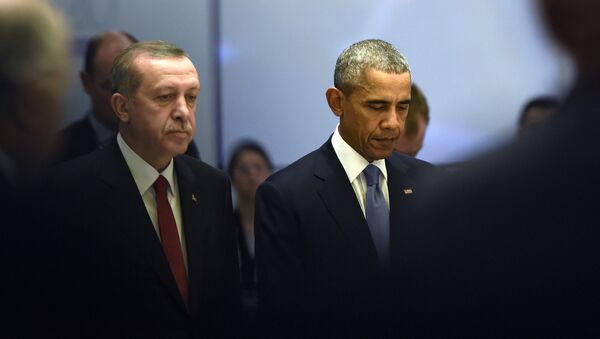The Turkish presidency later tried to backtrack on the comments, saying the media distorted them, but, as the New York Times noted, he "already built a disturbing record as an authoritarian leader willing to trample on human rights, the rule of law and political and press freedoms."

One of such trends has seen Ankara crack down on militants from the Kurdistan Workers' Party (PKK). The decades-long conflict is estimated to have claimed the lives of 45,000 people, but there was hope that the talks between the government and the PKK could achieve lasting peace.
These hopes were shattered when the fragile ceasefire broke in 2015. That year, approximately 3,100 Kurdish militants and an undisclosed number of civilians were killed, while Ankara's partners in the West remained silent.
"Turkey's allies, America and Europe, have been disgracefully acquiescent as the army brutally pounds Kurdish targets in the country's southeast region," the newspaper noted.
The situation is not getting better since Erdogan does not want to work with the pro-Kurdish Peoples' Democratic Party (HDP).
"If Mr. Erdogan wanted a sustainable peace, he would work with the HDP. Instead, he seems determined to crush the Kurds in the political arena as well as on the battlefield by accusing an HDP leader, Selahattin Demirtas, of treachery for calling for self-rule for Kurds," the publication observed.
Erdogan, according to the newspaper, is "ignoring the higher-stakes fight against [Daesh] and further fueling regional tensions. [He] has fallen far from the days when he could be regarded as a respected leader of a Muslim-majority democracy and a trusted partner in the region."





